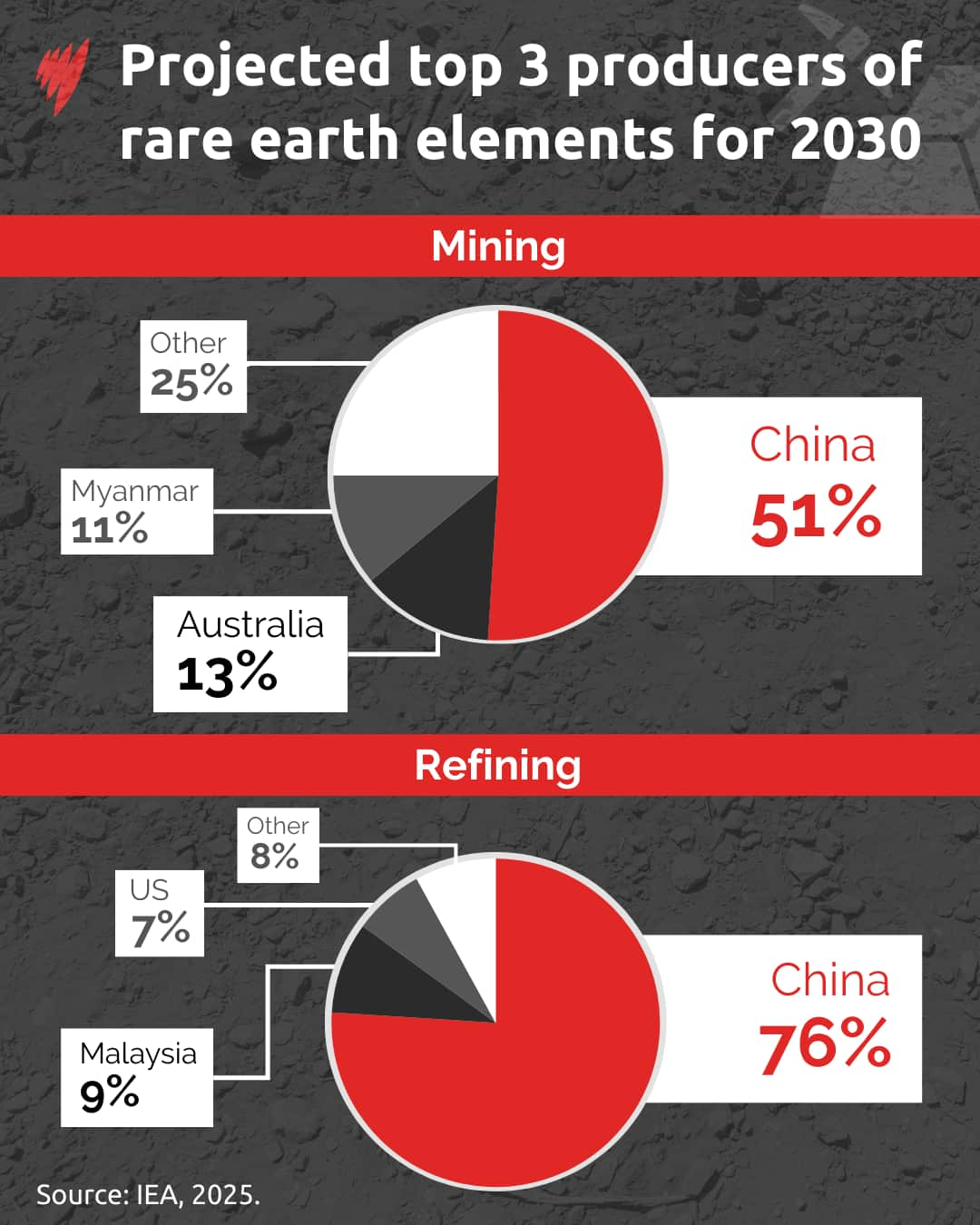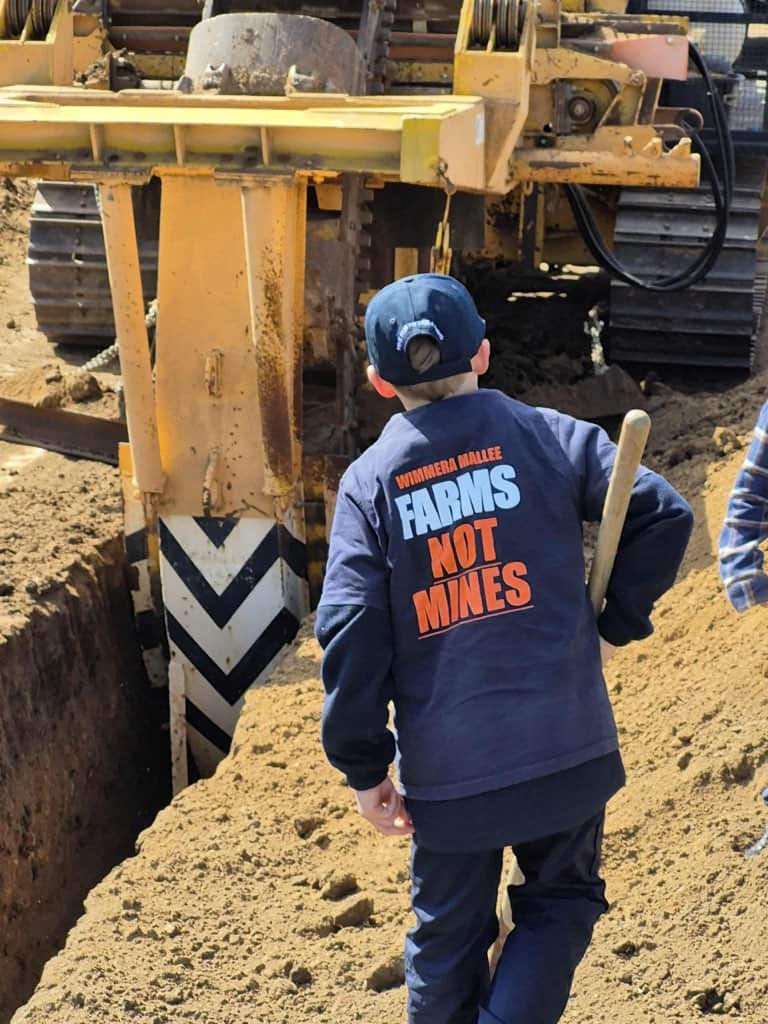Share this @internewscast.com
Rare earths, a term that might sound misleading, aren’t actually all that rare. Despite the name, these elements play a crucial role in a variety of modern technologies.
From consumer electronics and electric vehicles to medical devices and robotics, rare earth elements are fundamental to many cutting-edge advancements. They are also significant in the production of military equipment.
However, extracting and processing these materials is costly, labor-intensive, and often harmful to the environment.
Historically, most countries have relied on China for the supply of rare earths. According to expert Vivoda, China rose to prominence in this field during the 1990s.

In a strategic move to bolster national security amid global uncertainties, Prime Minister Albanese announced in April an initial $1.2 billion investment. This funding aims to establish a reserve of critical minerals, including rare earths, which are deemed essential for Australia’s future.
Most countries have left the work to China, which Vivoda says emerged as a key player in the 1990s.
In April, Albanese announced an initial investment of $1.2 billion to set up a strategic reserve of critical minerals, including rare earths, which he described as key to Australia’s national security “in a time of global uncertainty”.

Farmers gathered this month to protest against a pipeline to enable the Donald Mineral Sands project, south-east of Minyip in Victoria. Source: Supplied
The government has also agreed to loan over $2.6 billion to two firms to establish separate refineries — Arafura Rare Earths mine in the Northern Territory and Iluka Resources in Western Australia.













